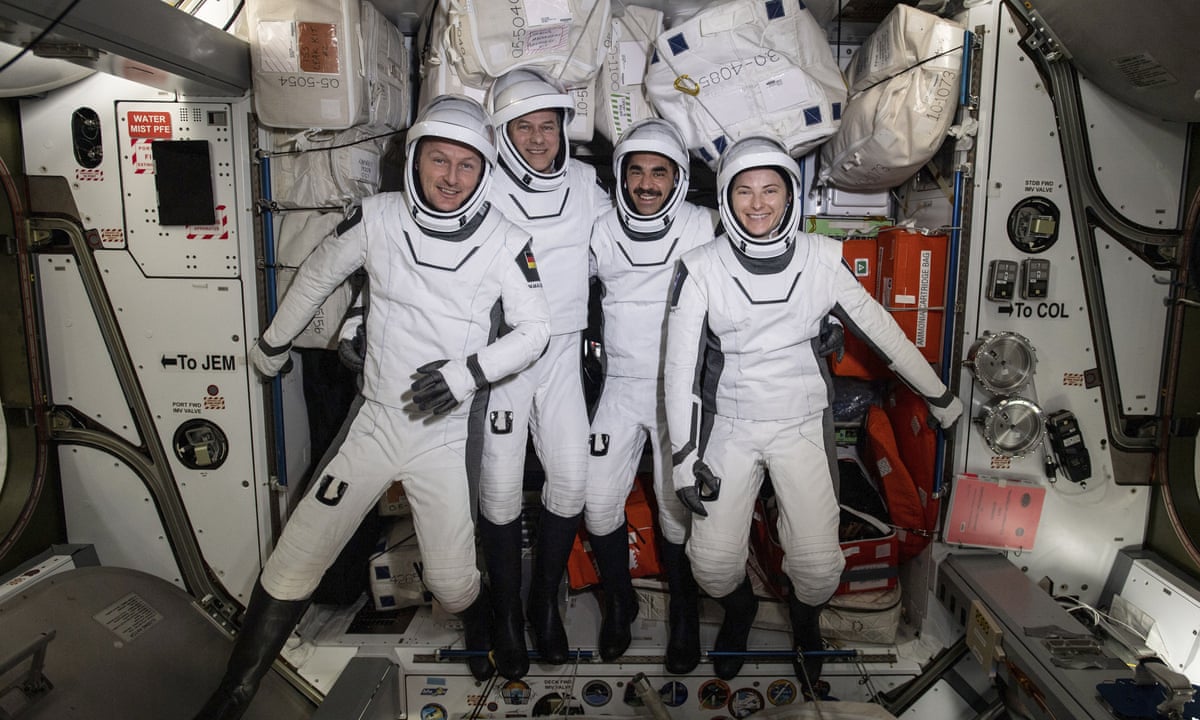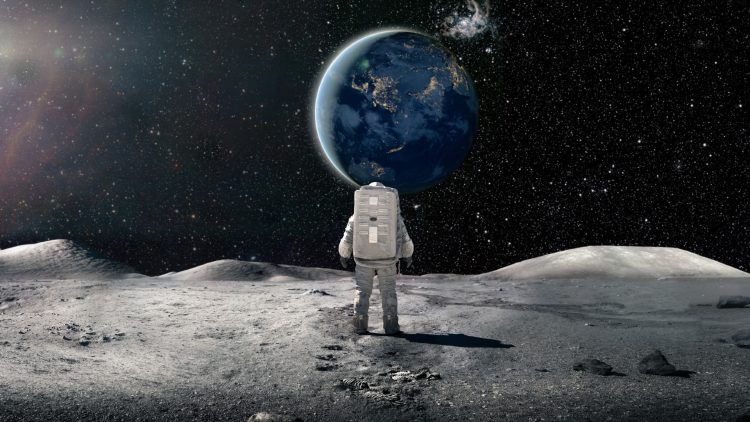Imagine being alone in the silent vacuum of space for 500 days — nearly a year and a half floating above Earth, orbiting at about 28,000 kilometers per hour, far from the comforting pull of gravity. This is not science fiction; astronauts aboard the International Space Station (ISS) and other space missions have faced extended stays that test the limits of human endurance. But what actually happens to the human body after such a long time in space?
In this article, we dive deep into the fascinating, sometimes surprising, and scientifically rich effects of long-duration spaceflight on the human body, drawing on research from NASA, ESA, Roscosmos, and private spaceflight data. We will explore the physical, neurological, and psychological transformations that occur, and how future space travelers might prepare to tackle these challenges on missions to Mars and beyond.
The Context: Why 500 Days?
Before delving into the effects, let’s put 500 days in perspective. The longest continuous human spaceflight to date was by Russian cosmonaut Valeri Polyakov, who spent 437 days aboard the Mir space station in the mid-1990s. NASA’s astronaut Scott Kelly and cosmonaut Mikhail Kornienko completed a year-long mission aboard the ISS from 2015 to 2016.
A 500-day mission represents the threshold for missions to Mars or long-term lunar habitats, where astronauts will be exposed to microgravity, radiation, isolation, and confined living conditions for prolonged periods. Understanding the body’s response at this timescale is crucial for astronaut health, mission success, and the future of human space exploration.
The Physical Impact of 500 Days in Space
1. Bone Density: The Silent Thief
One of the most well-documented effects of microgravity is bone loss. On Earth, our skeleton is constantly remodeled through the stresses of gravity and movement. Without gravity’s pull, bones experience less mechanical stress, triggering an accelerated breakdown.
- Rate of loss: Astronauts can lose up to 1-2% of their bone density per month in space. After 500 days, this could mean a loss of 15-30% of critical bone mass, particularly in weight-bearing bones such as the femur and spine.
- Risks: This leads to fragile bones and increased fracture risk, both during spaceflight and upon return to Earth.
- Countermeasures: Exercise regimens using resistance devices and specialized diets rich in calcium and vitamin D help, but cannot fully prevent loss.
2. Muscle Atrophy: The Floating Weakness
Muscle mass and strength decline without the need to counteract gravity. This affects postural muscles responsible for standing and balance.
- Extent: Astronauts may lose 20-30% of muscle mass during long missions.
- Symptoms: Weakness, reduced endurance, and impaired motor control can persist after returning to Earth.
- Exercise: Daily resistance and aerobic workouts aboard the ISS combat atrophy but require discipline and sophisticated equipment.

3. Cardiovascular Changes: The Fluid Shift
Microgravity causes bodily fluids to shift from the lower body toward the head, leading to:
- Facial puffiness and nasal congestion (the “moon face” effect).
- Decreased blood volume: The heart pumps less blood because it doesn’t work as hard to fight gravity.
- Orthostatic intolerance: Upon return to Earth, astronauts may faint or feel dizzy when standing because their cardiovascular system struggles to adjust.
4. Vision Changes: Spaceflight-Associated Neuro-ocular Syndrome (SANS)
An unexpected effect discovered over recent years is SANS, affecting astronauts’ eyesight.
- Cause: Increased intracranial pressure from fluid shifts compresses the optic nerve and alters the shape of the eyeball.
- Symptoms: Blurred vision, flattening of the eyeball, swelling of the optic nerve.
- Long-term impact: Can be permanent or improve slowly after return to Earth, but poses risks for deep space missions.
5. Immune System Dysregulation
Spaceflight affects immune function in complex ways:
- Weakened defenses: Microgravity and stress impair immune responses.
- Viral reactivation: Dormant viruses like herpes simplex can reactivate.
- Increased infection risk: Confined habitats and limited medical resources make this a serious concern.
6. Radiation Exposure: The Invisible Threat
Outside Earth’s protective magnetosphere, cosmic radiation poses a significant hazard.
- Cumulative dose: Over 500 days, astronauts receive a radiation dose roughly equivalent to 20-40 chest X-rays per day.
- Risks: Increased cancer risk, DNA damage, potential for acute radiation sickness during solar flares.
- Shielding challenges: Spacecraft materials and protective suits offer limited protection, making radiation a top concern for Mars missions.
Neurological and Cognitive Effects
1. Brain Structural Changes
Recent MRI studies show that long-duration spaceflight can alter brain structure:
- Gray matter shifts: Changes in areas controlling movement and sensory input.
- Fluid redistribution: Increased cerebrospinal fluid volume.
- Potential consequences: Altered coordination, cognition, and sensory processing.
2. Cognitive Performance and Mental Health
Isolation, confinement, disrupted circadian rhythms, and stress impact cognitive function:
- Attention and memory: Some astronauts experience temporary declines in memory, reaction time, and multitasking ability.
- Mood disorders: Anxiety, depression, and sleep disturbances are common.
- Mitigation: Virtual reality, communication with Earth, and structured schedules help maintain mental health.

Psychological and Social Impact
1. Isolation and Confinement
Being confined in a small space with limited social contact for 500 days is psychologically taxing.
- Loneliness: Separation from family and friends weighs heavily.
- Group dynamics: Crew cohesion is critical; conflicts can escalate.
- Coping: Psychological support via telecommunication, recreational activities, and mission structure.
2. Circadian Rhythm Disruption
Spacecraft orbit the Earth roughly every 90 minutes, causing 16 sunrises and sunsets per day.
- Sleep problems: Insomnia and altered sleep cycles affect alertness.
- Health impacts: Poor sleep impairs immune function and mood.
- Solutions: Controlled lighting environments and sleep schedules.
Adaptations: How the Human Body Adjusts
Despite these challenges, the human body is remarkably adaptable:
- Neuroplasticity: The brain can reorganize sensory and motor functions to cope with microgravity.
- Muscle memory: Strength and coordination can recover relatively quickly after return.
- Psychological resilience: Training and support systems enhance mental toughness.
Preparing for the Future: What 500-Day Missions Teach Us
As agencies plan Mars missions and lunar bases, understanding long-duration effects is crucial:
- Countermeasures: Improved exercise devices, pharmaceuticals, artificial gravity concepts.
- Spacecraft design: Better radiation shielding, ergonomic habitats.
- Medical monitoring: Telemedicine and onboard diagnostic tools.
- Psychological support: Enhanced virtual reality, social interaction, and leisure options.
Conclusion: The Human Body’s Odyssey in Space
Spending 500 days in space challenges every system in the human body — skeletal, muscular, cardiovascular, neurological, immune, and psychological. Though spaceflight accelerates aging-like processes such as bone loss and muscle atrophy, it also reveals the incredible adaptability and resilience of humans.
Future space explorers will benefit from ongoing research, technological advances, and lessons learned from pioneering astronauts who have already endured extended missions. The dream of stepping foot on Mars is closer than ever, and the story of how our bodies respond to the cosmos is an epic saga of science, courage, and human spirit.











































Discussion about this post